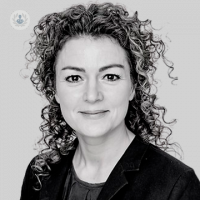How can social anxiety be managed and treated?
Escrito por:In this article below, leading London-based psychologist, Dr Joanne Stuart, talks to us in detail about social anxiety and how it can affect individuals.

What is social anxiety disorder?
Social anxiety disorder involves intense fear and anxiety when facing social interactions. People with social anxiety often feel they are being judged negatively, they believe their anxiety is obvious and others will reject them or laugh at them for it.
Common situations triggering anxiety include meeting new people, being in large groups, dating, making phone calls, or eating in front of others.
What are the main known causes of social anxiety?
The exact cause is unknown, but, as with all anxiety disorders, brain chemistry certainly plays a role. Childhood experiences, upbringing, and social learning also greatly contribute. Another cause is ongoing and regular irrational thoughts about social situations, which perpetuate anxiety.
What are the associated symptoms?
The main physical symptoms associated with social anxiety include a rapid heartbeat, sweating, trembling, blushing, nausea, dry mouth, and muscle tension. There are also various psychological symptoms. These include:
- Excessive worry about embarrassment or scrutiny.
- Fear of public speaking or social events.
- Avoidance of situations causing distress.
How can social anxiety be managed and treated?
Cognitive behavioural therapy (CBT) is highly effective when it comes to managing social anxiety. It helps change negative thought patterns and behaviours. Not only that, but exposure therapy gradually desensitises individuals to feared situations.
Other ways of managing this form of anxiety include:
- Medications such as antidepressants
- Mindfulness
- Relaxation techniques such as deep breathing and progressive muscle relaxation
- Challenge negative thoughts
Can social anxiety be prevented? What is the outlook like for people suffering from it?
Early intervention and management strategies are crucial. With proper treatment, most individuals experience significant improvement. Support groups and maintaining social connections also greatly enhances recovery.
If you wish to consult with Dr Joanne Stuart, simply head on over to her Top Doctors profile today.


